- Home
- Darynda Jones
A Good Day for Chardonnay Page 9
A Good Day for Chardonnay Read online
Page 9
She leaned closer to Quince and spoke quietly. “He’s starting to look more and more like his brother Clay than I’d hoped.”
“You think this is bullshit?”
“It’s starting to look that way, but first, what does he want? And second, if he’s dying, why aren’t we in the medical ward?”
“Well, fuck,” Quincy whispered. “He played us.”
“Maybe. Let’s see what he has to say and try to get a peek at his jacket.”
“Until then…” Quincy looked at the guard. “I want a stab vest for the sheriff.”
“What?” she said. “Don’t be ridiculous, Quince. It’s not like we’re going out into the yard.”
He bent closer. “Sunny, maybe he’s called you here to find out what you know about your abduction. Not the other way around. Do you know how easily a shot caller can get to you in here? He’ll have hundreds below him. Possibly thousands if he truly is top dog. All waiting to do his bidding just to get noticed.”
She looked at the guard and held up two fingers as though ordering drinks at a pub. “We’ll take two.”
Ten minutes after they’d strapped into the hard body armor, a single guard led a handcuffed man into the room. If he were truly violent, he would have had two escorts. The fact that he only had one eased her mind, though just barely. Still, when they started to uncuff him, Sun held up her hand. “He’s fine just like he is.”
The guard looked at Wynn as though gauging his reaction. When Wynn only smiled at Sun, the guard nodded and left the room. That exchange depleted what little confidence she had that they’d make it out alive.
Wynn Ravinder, a startlingly handsome muddy blond in his late forties, watched her like a hawk watches its prey. He was tall and slim, rock hard, and covered in tattoos from the looks of his forearms and neck, though thankfully she saw no Aryan tattoos.
He was attractive in the same way Levi was, as though chiseled by the gods, yet they looked nothing alike. Besides the lean, solid bodies and razor-sharp jawlines, the resemblance ended there. Since Levi was most likely not blood related to Wynn—rumors abounded that Levi’s mother had strayed and that his real father was part Native American—their lack of resemblance was no surprise.
But like Levi, Wynn looked as though he would be equally as comfortable in Armani gray as prison orange. His striking features and obsidian-sharp gaze answered her questions as to how he became such an elevated shot caller.
Unfazed about the cuffs, he lifted the pant legs of his orange uniform and folded himself into the chair across from them. Sun took out a pen and notepad and waited. After studying her a solid minute, he eased back in the chair and eyed her from underneath his lashes.
“You came,” he said at last.
“You called,” she countered. “I doubt we have much time, what with you dying and all.”
“You worried about me?” He gestured toward the rigid stab vests they both wore, which only looked like Kevlar. They were a hard, almost impenetrable plastic. Kind of like wearing a cutting board.
“They insisted we wear these,” she lied.
He nodded. “They do that. You look like your mother.”
Sun felt Quincy tense.
“Mr. Ravinder,” she said, ready to get out of there, “you said you had information about my abduction.”
“I do.”
“You also said you were dying, yet you look like the healthiest person in this place. Guards included.”
He lifted a shoulder. “I work out.”
“You aren’t dying.”
“No.”
“Okay, let’s go,” she said to Quince, even though the disappointment crushed her.
She started to rise, when Wynn stayed her with, “But I do have information.”
She leveled a dubious look on him.
“I didn’t lie about that.”
After weighing the pros and cons, she sat back down and gave him a slow once-over to establish some semblance of dominance. She doubted it worked. “What information?”
“First, you should probably know, I killed my brother Kubrick fifteen years ago.”
* * *
Auri sat in the same spot for two hours, scouring the newspaper clippings her grandparents had saved about a series of old missing persons cases in Del Sol. They had clippings on several other cases as well, but this one spoke to her.
Multiple people went missing over the span of a decade in the late fifties and early sixties, and the cases were never solved. A steelworker. A businessman. A young woman whose relations seemed more worried about a necklace she was wearing at the time of her disappearance than the girl herself. And more. Then one day the disappearances suddenly stopped.
“Did you see this?” Sybil asked, leaning toward her with a police report.
Sybil St. Aubin had been Auri’s best friend since moving to Del Sol. Maybe that was why the missing persons cases spoke to her so loudly. Just over four months ago, Sybil was one of them. She’d gone missing and her captor held her for days, waiting until her birthday to kill her. He’d wanted revenge on Sybil’s mother, which was just messed up.
Thankfully, Auri’s mom was on the case. As well as the best tracker in the state, Levi Ravinder. They found Sybil but lost her again when the kidnapper tried a second time. If not for Zee and her remarkable sharpshooting abilities, both Sybil and Auri’s mom would be dead.
The thought crushed Auri. Her mom was one thing. She didn’t know if she would survive losing her. But the thought of losing Sybil was almost as bad. She glanced up at her friend and marveled once again at their similarities. Red hair and, well, red hair. That was pretty much their only similarity other than their interests and hobbies and general outlook on life. And boys. Mostly boys.
Sybil’s hair was a light auburn while Auri’s was an embarrassingly bright copper. People stopped her in the street and asked if they could touch it. Not creepy at all. And Sybil had a light sprinkling of freckles that Auri envied. They were so cute. Auri had a darker complexion and no freckles to speak of. Also, no round-rimmed glasses like the ones that made Sybil look book-nerd adorable.
When she’d met Sybil at the lake on New Year’s Eve, Auri’s first thought was that she looked like an American Girl doll she’d had when she was little. The one her grandparents bought her because it had red hair, and who looked more like a schoolmarm than a little girl.
Her opinion had yet to change.
They sat cross-legged on the attic floor.
“They may have caught the killer, after all,” Sybil said, referencing the police report, “but it never went to trial, so they never knew for certain.”
Auri took the report but held it so Sybil could read with her. A musty police blotter with faded ink on yellowed paper described an incident at the county jail that happened on August 12, 1965. “Oh, my God,” Auri said. “They killed him.”
“Yes.” Sybil flipped to the second page. “A drifter named Hercules Holmes. He escaped and disappeared, but they found his body a couple of weeks later. Someone killed him before he could go to trial.”
“That’s awful,” Auri said.
Her grandmother weaved toward them through boxes and furniture. “The Holmes case?”
They looked up and nodded.
“What do you know about it, Grandma?”
She sat in a dusty rocking chair and put her elbows on her knees. “Just what’s in that box, I’m afraid.”
Auri looked at the piles of clippings around her. “Why do you have this stuff anyway?”
“History,” her grandfather said, panting from the climb up. He’d brought strawberry sparkling water and handed them each an ice-cold can.
“Thanks, Grandpa.”
“Thank you, sir,” Sybil said.
“Sybil, if you don’t start calling me Cyrus, I’m kicking you out. For good this time.”
She grinned and popped the top on her can. “Okay.”
They had a fan going, but it was getting hot fast. Auri’s grandfather f
anned himself and took in all the work they had yet to do. “We’re going to have to pick this up when it cools down in the evening.”
“Oh,” Auri said, jumping up. “Well, I’m okay. Do you mind if I keep looking?” She didn’t miss the knowing glances they exchanged.
“Of course not, peanut.”
“You saved all of this, all of these cases, for history?” Auri asked.
“Sure.” He sat on an old trunk next to his wife. “We’re actually working on opening a Del Sol history museum, and those old newspapers are gold.”
“But these are just clippings from old, unsolved cases. Except maybe the missing persons cases. They apparently caught that guy.”
“Do you believe they did?” her grandmother asked.
Auri and Sybil exchanged glances, too, testing each other’s reaction. “I guess,” Auri ventured. “I mean, it says that they caught this drifter named Hercules Holmes with one of the missing persons’ wallets.”
“So that makes him guilty?” her grandmother asked. “That makes him unworthy of a fair trial?”
“No,” she said adamantly. “Never.” She knew enough about the law from watching her mother scour over cases for years to know things were rarely that simple. She put the report down and looked at them. “You think he was innocent.”
Auri’s grandmother held up her palms. “I’m just asking what you think.”
She pressed her mouth together and thought about it. “The way I see it, he was either guilty and so he escaped or innocent and someone helped him escape.”
Cyrus narrowed his lashes at her, and if Auri didn’t know better, she’d say there was a sparkle of pride in his eyes. “What do you mean?” he asked, coaxing her to go deeper. He did that a lot.
“Well, he magically escapes a heavily guarded jail cell and then ends up dead two weeks later? According to the report”—she bent and read aloud—“he died from a single gunshot wound to the head shortly after escaping.” She looked back at him. “That doesn’t mean he didn’t somehow manage to get himself killed, but right after his magical escape? It seems more than a little suspect to me.”
Both he and her grandmother nodded in agreement.
“And he was a drifter passing through town,” she added. “These cases went back years. Where was he then?”
“Go on,” her grandmother encouraged.
“And what about the boardinghouse?”
“What boardinghouse?” Sybil asked, combing through the clippings for more.
Auri handed her a clipping from just before the drifter was killed. “According to the sheriff’s investigation, at least five of the missing victims were travelers who stayed at the same boardinghouse.” She rummaged around until she found another report. “The Fairborn House.” She stopped and thought about it. “The Fairborn House? As in Mrs. Fairborn? That sweet old lady who confesses to all of the crimes in Del Sol?”
“Really?” Sybil asked her.
“Yep. She’s been doing it for years. Every time a crime happens in Del Sol, she confesses to it. She even confessed to Kubrick Ravinder’s murder.”
The girl’s mouth formed a perfect O. “Did she do it?”
Auri giggled. “Of course not, silly. Can you find anything else on the boardinghouse?”
“I’ll try.”
By the time they looked up again an hour later, her grandparents were gone.
“Sybil, I may have spoken too soon. Maybe she did kill Kubrick after all. I think Mrs. Fairborn was a serial killer before they even called them serial killers.”
“Wow,” Sybil said, just as intrigued. “Wait, what did they call serial killers before that?”
Auri shrugged. “Maybe pancake killers? Bacon-and-egg killers?”
They devolved into a fit of giggles and only sobered when a thought hit Auri like a line drive at a major-league game. “I think we need to investigate,” she said.
“Really? Can we do that?”
“Sure. My mom does it every day. How hard can it be?”
7
Sprinkles are for cupcakes, not toilets.
—SIGN IN BATHROOM AT THE SUGAR SHACK
Sun didn’t hide her disbelief. She frowned at the man sitting across from her. “If I had a nickel for every time someone confessed to killing Kubrick Ravinder…”
Quincy agreed. “He’s the most popular dead guy since Edward Cullen.”
Wynn shrugged and leaned back in his chair. “What do you want to know?”
She took the pen in hand to start taking notes should she need to. “How did he die?”
“Painfully.”
“Does that mean you strangled him slowly?”
A knowing grin slid across his face. “I did, apple blossom. But that’s not what killed him.”
“Sheriff Vicram,” she corrected, only mildly curious as to why he’d referred to her as the flower of an apple tree. She was more interested in his knowledge about Kubrick’s death. While his larynx had been crushed, that was not how the man died.
“Much to my elder brother’s dismay, I put a knee on his throat, slid a knife into his chest, and watched with glee as the life drained out of him.”
It wasn’t often that she heard a hardened criminal use the word glee. There was something primal about the man. Something sharp and commanding and ruthless. The whole shot-caller thing made perfect sense now. His dark blond hair, although slicked back, hung to his shoulders in the choppy style of a man who didn’t concern himself overly much with his daily coif. Then again, what inmate did? His scruffy jaw only added to the look.
“So you and Kubrick didn’t get along?” Quincy asked.
“We took our sibling rivalries like we took our corn whiskey. Very seriously.”
It was no wonder. Moonshine was, after all, how his family had made a living for decades. But anyone could have found out how Kubrick was killed. That didn’t tell her a thing. “How long—?”
“Twelve seconds.” When she paused, he added, “It took twelve seconds for him to die. I counted.”
She began again. “How long was the blade?”
“Long enough to get the job done.”
“How many inches?”
He released a lungful of air and examined his fingernails, as though their questions were growing tedious. But he’d called her. Not the other way around.
“I didn’t measure,” he said, offering his hawkish gaze again. “But if I were to use a body part as reference, I’d say about eight inches. Give or take.”
Close enough.
“And he just lay there?” Quincy asked. “Let you crush his larynx and plunge a knife into his chest?”
“Don’t be ridiculous. We fought.” He speared him with his glistening gray eyes. “I won.”
Sun feigned boredom. “Then that was your blood all over Kubrick’s T-shirt.”
Another knowing grin crept into the corners of his mouth. “You mean all over his denim jacket and that flannel shirt he wore every fucking day of his miserable fucking life?”
Two for two. He was the first confessor to get this far. Besides Levi, of course, but she hadn’t questioned him this extensively.
“Unless,” he continued, “you’re talking about the filthy wife-beater underneath.”
Sun’s knee-jerk reaction to the derogatory term for an A-line tank top bucked inside her. Regardless, she didn’t move a muscle. Didn’t flinch. Yet he knew.
“I’m sorry.” He tilted his head to study her. “Did that offend your delicate sensibilities?”
“The only thing offending my delicate sensibilities, Mr. Ravinder, is the fact that you think we came here for tea and scones. You haven’t proven anything.”
He shrugged. “Then check the blood on Brick’s jacket. My DNA’s in the system. I’m assuming you sent in a sample.” He leaned forward. “You wouldn’t have a reason to hold off on that, would you?”
Sun’s façade slipped for a split second. It was all a predator like him needed. She’d just showed her hand, but he couldn’t
possibly know how long she’d waited before sending the evidence in to the lab in Santa Fe along with Levi’s DNA. Not without having some fantastic connections.
Quincy cast a curious glance her way before returning his attention to their host.
She hadn’t told him she’d kept Levi’s DNA sample in her desk drawer far longer than she had a right to. And part of her wasn’t really sure why. Other than the fact that, if it was a match, he could go to prison. If it came out that she’d withheld evidence, even for a short time, in a murder investigation, she could lose her job.
The unfortunate fact that evidence in general tended to get lost or contaminated when surfing through the channels of justice could work in her favor should it come to that, but no one could prove that she took the sample on any given day. Besides Levi himself, and she could hardly see him turning her in.
Wynn leaned closer to Sun and lowered his voice. “What do you say we ditch Captain America over there and continue this conversation alone?”
“Over my dead body,” Quincy said.
He shook his head and tsked. “That is the wrong thing to say in this place, junior.”
“Why are you confessing?” she asked him.
“Why do you care?” he countered. “You’ll have your man. You’ll have solved the case. You’ll probably get a medal. Isn’t that all you badges care about?”
After a long thoughtful moment, she said quietly, “Chief Deputy Cooper, can you leave us alone for a minute?”
He tried to hide his astonishment when he looked at her. He failed. After a long, tense moment, he recovered, cleared his throat, and said, “No, ma’am.”
She gave him her full attention and said softly, “Deputy, that’s an order.”
He stared at her for what seemed like an hour. She could practically see his mind racing with all the scenarios of how this could end badly. But she didn’t like showing her vulnerabilities. It would be hard enough asking what she wanted to ask Wynn without having Quincy in the room. Besides, statistically, men were much more apt to open up to a woman.

 For I Have Sinned
For I Have Sinned First Grave on the Right
First Grave on the Right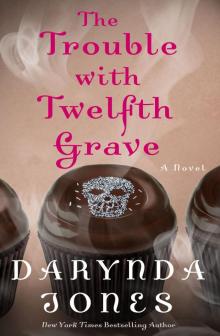 The Trouble With Twelfth Grave
The Trouble With Twelfth Grave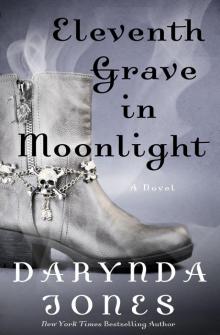 Eleventh Grave in Moonlight
Eleventh Grave in Moonlight Brighter Than the Sun
Brighter Than the Sun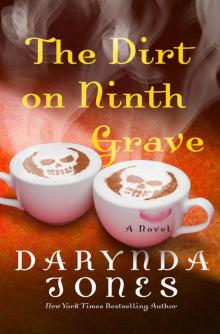 The Dirt on Ninth Grave
The Dirt on Ninth Grave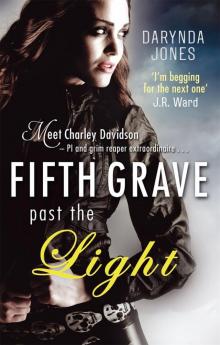 Fifth Grave Past the Light
Fifth Grave Past the Light Death, Doom and Detention
Death, Doom and Detention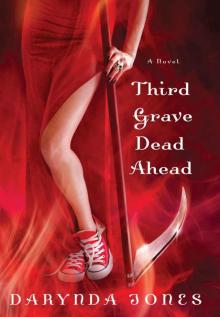 Third Grave Dead Ahead
Third Grave Dead Ahead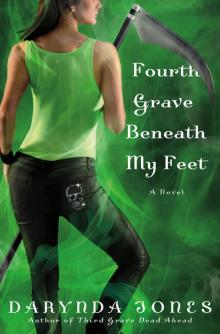 Fourth Grave Beneath My Feet
Fourth Grave Beneath My Feet Death and the Girl Next Door
Death and the Girl Next Door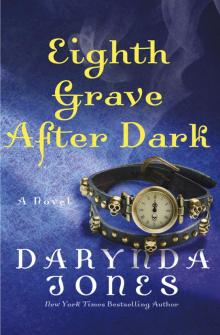 Eighth Grave After Dark
Eighth Grave After Dark Second Grave on the Left
Second Grave on the Left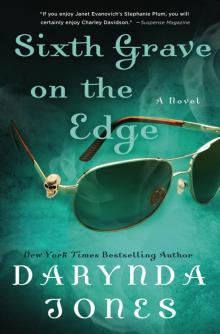 Sixth Grave on the Edge
Sixth Grave on the Edge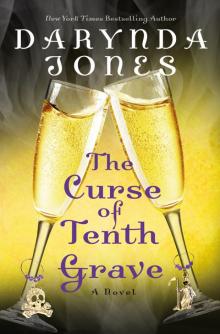 The Curse of Tenth Grave
The Curse of Tenth Grave Bewitched: A Paranormal Women's Fiction Novel (Betwixt & Between Book 2)
Bewitched: A Paranormal Women's Fiction Novel (Betwixt & Between Book 2)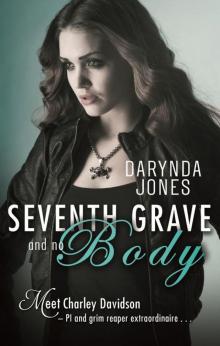 Seventh Grave and No Body
Seventh Grave and No Body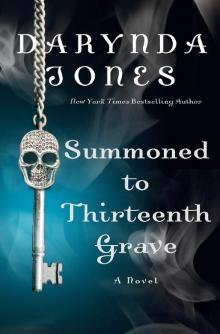 Summoned to Thirteenth Grave (Charley Davidson #13)
Summoned to Thirteenth Grave (Charley Davidson #13) A Good Day for Chardonnay
A Good Day for Chardonnay Death, and the Girl He Loves
Death, and the Girl He Loves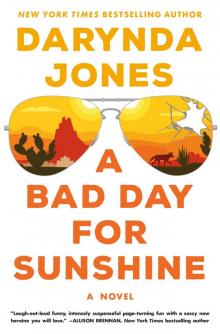 A Bad Day for Sunshine--A Novel
A Bad Day for Sunshine--A Novel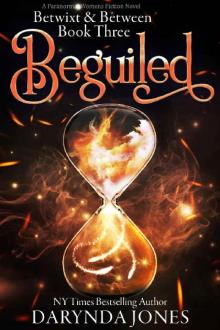 Beguiled
Beguiled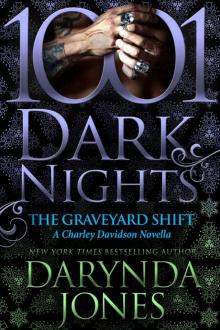 The Graveyard Shift: A Charley Davidson Novella
The Graveyard Shift: A Charley Davidson Novella Death and the Girl Next Door d-1
Death and the Girl Next Door d-1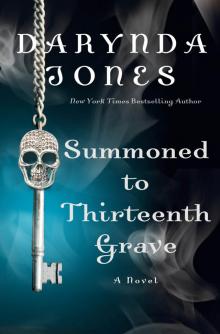 Summoned to Thirteenth Grave
Summoned to Thirteenth Grave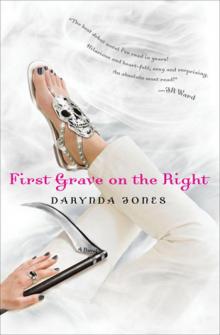 First Grave on the Right cd-1
First Grave on the Right cd-1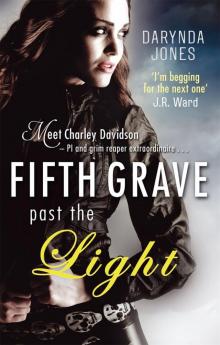 Fifth Grave Past the Light: Number 5 in series (Charley Davidson)
Fifth Grave Past the Light: Number 5 in series (Charley Davidson)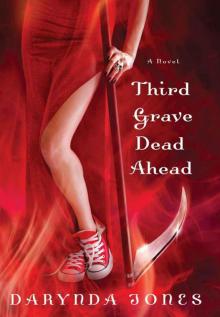 Third Grave Dead Ahead cd-3
Third Grave Dead Ahead cd-3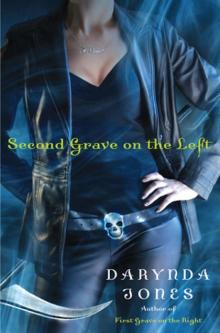 Second Grave on the Left cd-2
Second Grave on the Left cd-2